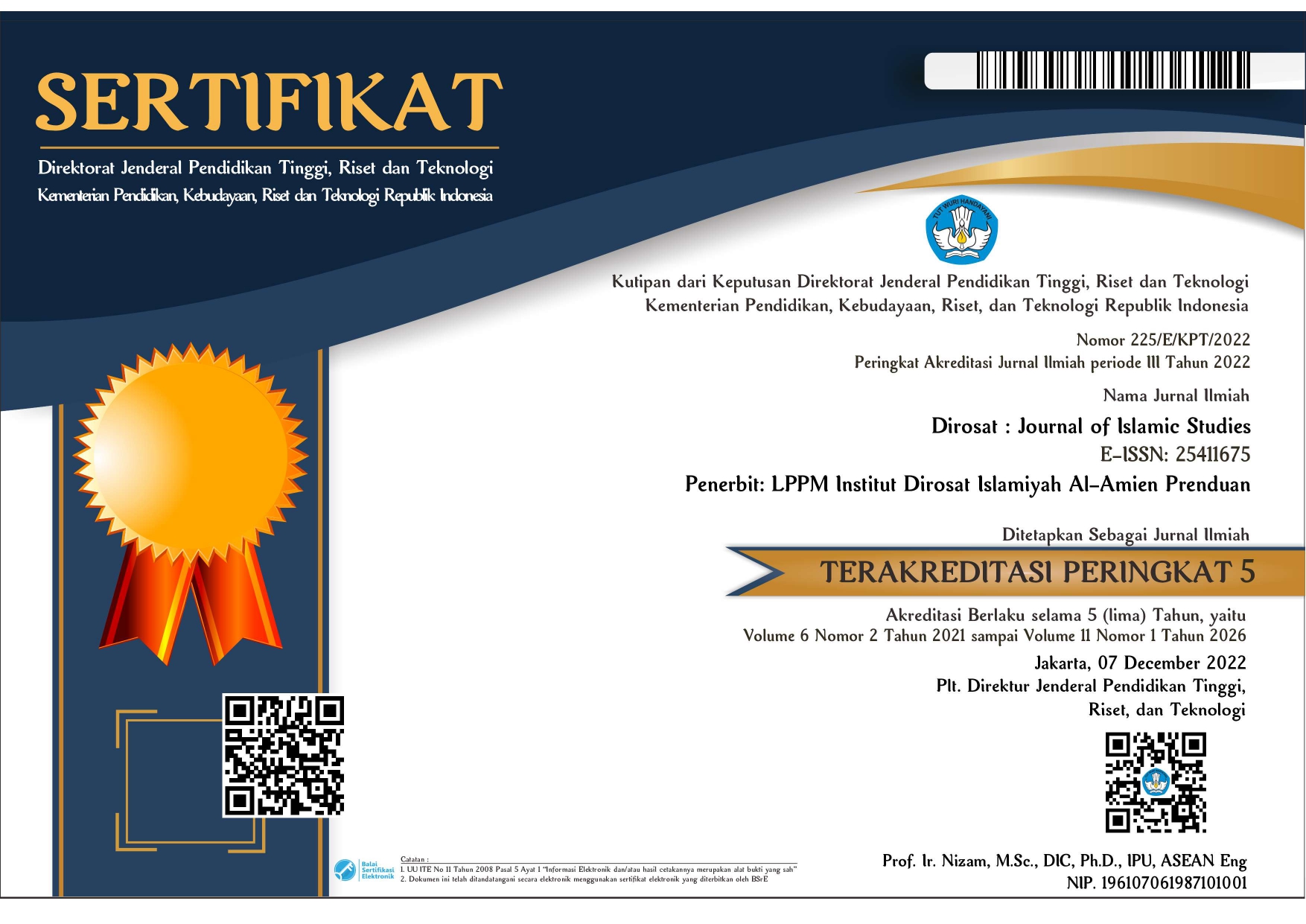Membangun Insan Kamil dari Perspektif Media; Media Literasi sebagai Kontrol Sosial
Abstract
References
Buku:
Ibrahim, Idi Subandy. 2007. Dinamika Popscape dan Mediascape di Indonesia Kontemporer. Yogyakarta: Jalasutra.
Tim peneliti YPMA. 2011. Konsep dan Implementasi Literasi Media dalam Kumpulan Makalah Workshop Nasional Konsep & Implementasi Media Literacy di Indonesia. Jakarta: Departemen Ilmu Komunikasi FISIP UI.
Mosco, Vincent. 2009. The Political Economy of Communication Second Edition. London: Sage Publications.
Perebinossoff , Philippe, Brian Gross, Lynne S. Gross. 2005. Programming for TV, Radio & Internet Strategy, Development & Evaluation. Amsterdam: Focal Press.
Wirodono, Sunardian. 2006. Matikan TV-Mu! Teror Media Televisi di Indonesia. Yogyakarta: Resist Book, Cet.2.
Fawaid, Achmad. 2010. Perpustakaan, Budaya Baca, dan Bangsa Bibliofil, Naskah Pemenang Kompetisi Esai Mahasiswa. Tp.
Ambardi, Kuskrido. 2014. Mapping Digital Media. Indonesia: Open Society Foundations.
Internet:
http://www.kompasiana.com/dimanasnawigmailcom/kesadaran-adalah-kekuatan-besar-dalam-hidup_54ff79baa33311ec4f50ff46 diakses pada tanggal 2 April 2016
http://www.beritasatu.com/budaya/19641-orang-indonesia-4-5-jam-menonton-tv-tiap-hari.html, diakses pada tanggal 2 April 2016.
http://www.nielsen.com/id/en/press-room/2014/nielsen-konsumsi-media-lebih-tinggi-di-luar-jawa.html, diakses pada tanggal 2 April 2016.
DOI: 10.28944/dirosat.v1i2.20
Refbacks
- There are currently no refbacks.

This work is licensed under a Creative Commons Attribution-NonCommercial-ShareAlike 4.0 International License.








